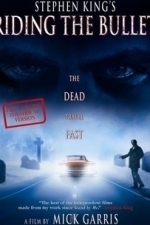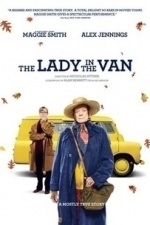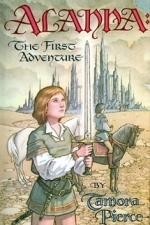Search
Search results
Matthew Krueger (10051 KP) rated Riding the Bullet (2004) in Movies
Sep 24, 2019
Roller-Coaster
Riding The Bullet- is a underrated psychological horror thriller film based off of a stephen king novel.
The Plot: Ever since his father passed away, art student Alan Parker (Jonathan Jackson) has been hypnotized by thoughts of death. After his girlfriend, Jessica (Erika Christensen), breaks up with him, Alan attempts suicide but is rescued by his friends. The next day, he learns that his mother (Barbara Hershey) has just had a serious stroke, and he sets out to hitchhike to her hospital. Along the way, he meets a series of strange people, including sinister George Staub (David Arquette), who may be Satan.
Its psychological, horrorfying, thrilling, chilling, spooky, terrorfying and super underrated.
I would highly reccordmend this movie.
The Plot: Ever since his father passed away, art student Alan Parker (Jonathan Jackson) has been hypnotized by thoughts of death. After his girlfriend, Jessica (Erika Christensen), breaks up with him, Alan attempts suicide but is rescued by his friends. The next day, he learns that his mother (Barbara Hershey) has just had a serious stroke, and he sets out to hitchhike to her hospital. Along the way, he meets a series of strange people, including sinister George Staub (David Arquette), who may be Satan.
Its psychological, horrorfying, thrilling, chilling, spooky, terrorfying and super underrated.
I would highly reccordmend this movie.
Movie Metropolis (309 KP) rated The Lady In The Van (2015) in Movies
Jun 11, 2019 (Updated Jun 11, 2019)
Like a particularly lethargic sloth
Cinema has a long lasting love of people having their homes invaded by unwanted intruders, and not just because that’s how most directors view anyone who tries to tell them their opinion on filmmaking. It’s because there’s a lot of different directions one can take with the drama and excitement of home invasion. The horror of Wait Until Dark, the brutality of Straw Dogs, the silliness of Home Alone, the potential is quite large. And now throwing in its own interpretation of this theme is The Lady in the Van, based on the somewhat true story of Alan Bennett’s relationship with a transient woman who parked her van on his driveway. So, how does he and the audience respond?
With a dull, mild curiosity.
Despite being from the viewpoint of two Alan Bennetts, described as one being the writer and the other living the life, the main character is Miss Sheppard, the lady in the van. The film insists that we should be interested in her mysterious life, her past as a pianist and a nun, and why she chooses to live in the van, but throughout most of the film I was only thinking “Oh, let’s just go back and hear Alan Bennett be cynical some more.” The words are witty and sharp, but it’s mostly said about things we don’t care about. Miss Sheppard is a flat, mostly dull character, and the audience is unwillingly handcuffed to her.
The highlight of the film is its acting, with the cast being a veritable who’s who of Britain’s finest talent, and James Corden. What dimension Miss Sheppard has is provided almost entirely by the volatile yet vulnerable performance by Maggie Smith, and Alex Jennings is as real an Alan Bennett as the actual Alan Bennett. Even in the small roles, everyone from Roger Allam to Gwen Taylor manage to force themselves to shine. The only bad performance is from, of all people, Jim Broadbent, who pops up to antagonise Miss Sheppard but appears less like a real human being and more like a cartoon supervillain. For a second, I thought the character’s name was Baron von Drakkhen.
But great players cannot save a bad game, and the story of the film is flat, predictable and boring. If you don’t immediately care about Miss Sheppard, then the film becomes more tedious and lifeless by the second. I guessed long before the end the mystery behind Miss Sheppard, but even if I hadn’t I would still have been bored due to the lack of any interest. The film believes that the existence of a mystery to be motivation enough to solve it, which just isn’t the case; I don’t know what John McCririck had for breakfast, but I’m not going to stare at his stools to find out.
Not helping matters is a very by the numbers direction by Nicholas Hytner. While not incompetent, there’s very little in the way of style or flair without being casual. The only parts that show any sort of imagination are the fourth wall breaks, but the best only happen towards the end. It’s a shame that the potential of having two Alan Bennetts and seeing the film from the perspective of the writer only starts to be explored as the film is drawing to a close. Otherwise, a robot could’ve directed this film.
Alan Bennett is a highly praised writer, and rightfully so, but The Lady in the Van just isn’t his best. The above-average but by no means stellar script is tied to a plot as lifeless and sluggish as a particularly lethargic sloth. If you’re really hurting to see Bennett at his best, it’d be a lot cheaper and a lot more entertaining to rent The Madness of King George or The History Boys or even one of The Secret Policeman’s Ball’s, plus you can order some pizza from your sofa. Otherwise, The Lady in the Van, unlike the real Miss Sheppard, can very safely be ignored.
https://moviemetropolis.net/2015/11/19/like-a-particularly-lethargic-sloth-the-lady-in-the-van-review/
With a dull, mild curiosity.
Despite being from the viewpoint of two Alan Bennetts, described as one being the writer and the other living the life, the main character is Miss Sheppard, the lady in the van. The film insists that we should be interested in her mysterious life, her past as a pianist and a nun, and why she chooses to live in the van, but throughout most of the film I was only thinking “Oh, let’s just go back and hear Alan Bennett be cynical some more.” The words are witty and sharp, but it’s mostly said about things we don’t care about. Miss Sheppard is a flat, mostly dull character, and the audience is unwillingly handcuffed to her.
The highlight of the film is its acting, with the cast being a veritable who’s who of Britain’s finest talent, and James Corden. What dimension Miss Sheppard has is provided almost entirely by the volatile yet vulnerable performance by Maggie Smith, and Alex Jennings is as real an Alan Bennett as the actual Alan Bennett. Even in the small roles, everyone from Roger Allam to Gwen Taylor manage to force themselves to shine. The only bad performance is from, of all people, Jim Broadbent, who pops up to antagonise Miss Sheppard but appears less like a real human being and more like a cartoon supervillain. For a second, I thought the character’s name was Baron von Drakkhen.
But great players cannot save a bad game, and the story of the film is flat, predictable and boring. If you don’t immediately care about Miss Sheppard, then the film becomes more tedious and lifeless by the second. I guessed long before the end the mystery behind Miss Sheppard, but even if I hadn’t I would still have been bored due to the lack of any interest. The film believes that the existence of a mystery to be motivation enough to solve it, which just isn’t the case; I don’t know what John McCririck had for breakfast, but I’m not going to stare at his stools to find out.
Not helping matters is a very by the numbers direction by Nicholas Hytner. While not incompetent, there’s very little in the way of style or flair without being casual. The only parts that show any sort of imagination are the fourth wall breaks, but the best only happen towards the end. It’s a shame that the potential of having two Alan Bennetts and seeing the film from the perspective of the writer only starts to be explored as the film is drawing to a close. Otherwise, a robot could’ve directed this film.
Alan Bennett is a highly praised writer, and rightfully so, but The Lady in the Van just isn’t his best. The above-average but by no means stellar script is tied to a plot as lifeless and sluggish as a particularly lethargic sloth. If you’re really hurting to see Bennett at his best, it’d be a lot cheaper and a lot more entertaining to rent The Madness of King George or The History Boys or even one of The Secret Policeman’s Ball’s, plus you can order some pizza from your sofa. Otherwise, The Lady in the Van, unlike the real Miss Sheppard, can very safely be ignored.
https://moviemetropolis.net/2015/11/19/like-a-particularly-lethargic-sloth-the-lady-in-the-van-review/
Goddess in the Stacks (553 KP) rated Alanna: The First Adventure in Books
Apr 16, 2018
The Song of the Lioness quartet is Tamora Pierce's first set of books. I read her latest trilogy (the Beka Cooper trilogy) first, which didn't exactly prepare me for The Song of the Lioness. It's obvious, going from the latest trilogy to her first writing, how much her writing has matured since the 80s. My first thought upon completing Alanna: the First Adventure was "I'm very glad she's gotten better at writing!" The story itself is still interesting and worth reading, but the style is a little difficult to read when I KNOW how well she writes now. The characters are mostly one-dimensional; few of the side characters seem to have plots going or events happening to them when they're not with Alanna. Characters pop up, have a significant interaction with Alanna, and are gone again, with no indication they exist outside of their usefulness to the main character. This is in stark contrast to her latest work, where every character that has a significant role to play has a history of their own, and thoughts and feelings of their own. They're much more fleshed out in her recent books.
That complaint aside, the Alanna books are really the foundation that the rest of Tortall was built upon. It's interesting to see how Pierce has fleshed out some of the concepts she touched on in the Alanna saga, and it's fun to see where some of the things from the Beka Cooper trilogy originated. It also pays to keep in mind that though the Alanna books were written first, the Beka Cooper trilogy is based two hundred years earlier. We learn a lot more about the office of The Rogue in the Beka Cooper trilogy, something that isn't explained very well in the Alanna quartet, even though one of Alanna's main romantic interests is George Cooper (yes, a descendant of Beka!), the Rogue. Pierce also never explains the origins of Alanna's cat, Faithful, in the actual Alanna books. That explanation lies in the Beka Cooper books as well.
The Song of the Lioness quartet is the story of a girl who decides to rebel against tradition and follow her heart to become a knight. In her time, ladies simply do NOT become knights. They learn to organize households and marry well. Alanna, however, is lucky enough to have a twin brother who does not want to become a knight; instead Thom wants to be a mage. So when they're sent off to face their futures, they switch places, with Alanna becoming "Alan", the younger twin. (Thom stays Thom; the school that ladies are sent to is the same school mages start at.)
Alan/Alanna begins as a page, then moves to squire, and eventually a knight. Her secret is discovered, but due to her influential friends, most of whom knew she was a girl by then, she is able to keep her status. Her adventures take her from uncovering a plot against the royal family, to being adopted by a desert tribe, to recovering a magic jewel of prosperity, with many small adventures in between.
I love reading Pierce's heroines; both Alanna and Beka have problems reconciling their feminine natures with the work they've chosen. The scenes where Alanna's love interests see her in a dress for the first time, instead of her normal boy-garb and armor, is heart-warming in one case, and sad in another. In both womens' lives it's the man who can accept all of their aspects who ultimately wins their heart, which is a wonderful message.
Ultimately, the technical flaws in the writing of the Alanna saga faded as I became absorbed in the story. I'll be requesting more Tortall books from the library in the near future!
You can find all my reviews at http://goddessinthestacks.wordpress.com
That complaint aside, the Alanna books are really the foundation that the rest of Tortall was built upon. It's interesting to see how Pierce has fleshed out some of the concepts she touched on in the Alanna saga, and it's fun to see where some of the things from the Beka Cooper trilogy originated. It also pays to keep in mind that though the Alanna books were written first, the Beka Cooper trilogy is based two hundred years earlier. We learn a lot more about the office of The Rogue in the Beka Cooper trilogy, something that isn't explained very well in the Alanna quartet, even though one of Alanna's main romantic interests is George Cooper (yes, a descendant of Beka!), the Rogue. Pierce also never explains the origins of Alanna's cat, Faithful, in the actual Alanna books. That explanation lies in the Beka Cooper books as well.
The Song of the Lioness quartet is the story of a girl who decides to rebel against tradition and follow her heart to become a knight. In her time, ladies simply do NOT become knights. They learn to organize households and marry well. Alanna, however, is lucky enough to have a twin brother who does not want to become a knight; instead Thom wants to be a mage. So when they're sent off to face their futures, they switch places, with Alanna becoming "Alan", the younger twin. (Thom stays Thom; the school that ladies are sent to is the same school mages start at.)
Alan/Alanna begins as a page, then moves to squire, and eventually a knight. Her secret is discovered, but due to her influential friends, most of whom knew she was a girl by then, she is able to keep her status. Her adventures take her from uncovering a plot against the royal family, to being adopted by a desert tribe, to recovering a magic jewel of prosperity, with many small adventures in between.
I love reading Pierce's heroines; both Alanna and Beka have problems reconciling their feminine natures with the work they've chosen. The scenes where Alanna's love interests see her in a dress for the first time, instead of her normal boy-garb and armor, is heart-warming in one case, and sad in another. In both womens' lives it's the man who can accept all of their aspects who ultimately wins their heart, which is a wonderful message.
Ultimately, the technical flaws in the writing of the Alanna saga faded as I became absorbed in the story. I'll be requesting more Tortall books from the library in the near future!
You can find all my reviews at http://goddessinthestacks.wordpress.com


